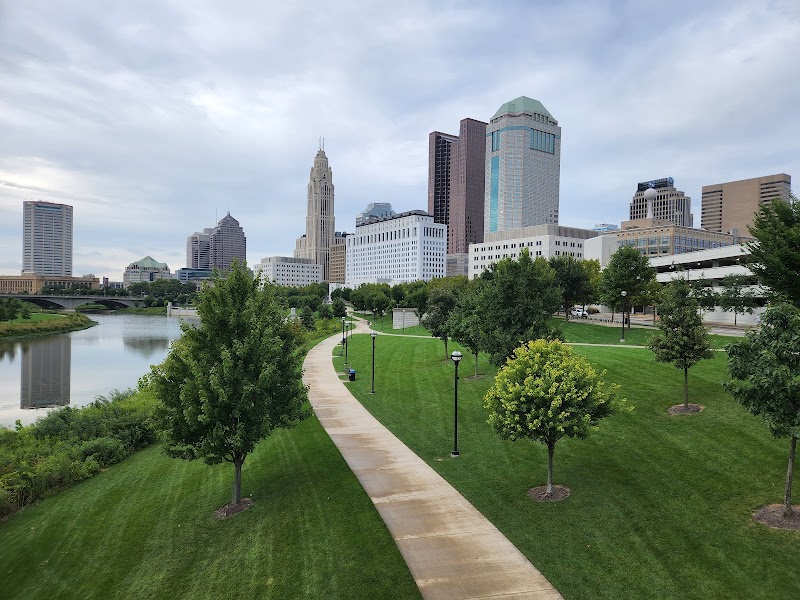
The Ohio to Erie Trail offers an immersive cycling journey spanning 326 miles across Ohio’s diverse landscapes and history. From urban hubs to quiet woodlands, this trail invites cyclists to experience varied terrain and cultural landmarks while testing endurance and planning skills.
Pack Hydration Strategically
Water stops are spaced irregularly; bring at least 2 liters per ride segment and refill whenever possible to avoid dehydration.
Prepare for Mixed Terrain
Carry multi-purpose tires and know how to handle gravel sections; anticipate brief off-road challenges even on longer paved stretches.
Time Your Ride for Cooler Hours
Start early in the day to avoid midday heat, especially in summer; sunrise rides also reveal stunning light and quieter trails.
Map Your Resupply Points
Plan stops at towns with bike shops and small markets; local eateries provide refueling options and a chance to restock essentials.
Bike the Ohio to Erie Trail: A Cross-State Ride Through History
Stretching 326 miles from Cincinnati’s bustling urban banks to the gentle slopes of Cleveland’s lakefront, the Ohio to Erie Trail offers more than just a ride—it challenges you to traverse the state’s past and present through a corridor fiercely shaped by rivers, railroads, and rugged landscapes. The trail’s surface varies from smooth paved stretches to packed gravel paths that push your legs and invite close company with the environment's raw character. Expect gentle hills dispersed alongside sharp climbs that demand attention, while forests stretch above like living canopies, their leaves whispering stories from the forest floor.
The Ohio River dares you forward in the south, currents pulling you into the heart of Cincinnati’s energy. Heading north, quiet towns and historical sites like the Ohio & Erie Canal State Scenic Trail integrate moments for pause and exploration. The trail blends working farmland, serene woodlands, and waterways that once shaped commerce and migration routes—all fiercely alive in a ride that requires respect for nature’s changing moods.
Timing your ride is critical. Spring and fall offer crisp days when humidity dips and colors ignite the landscape, but sudden storms can test your readiness. Summer insists on hydration, with a full water supply your silent partner. Boots or shoes designed for mixed terrain prevent on-trail fatigue.
Plan stages between towns for supplies and rest; bike shops and local cafes punctuate the route in case repairs or refueling become urgent. Given the trail’s length, a mix of endurance and strategic pacing helps you meet the challenge without burning out.
Adventure here is not about conquering, but engaging with a landscape that holds history in every bend and challenge in every mile. Listen for the creek’s murmur, feel the breeze’s sharpness on open ridges, and watch cicadas sweep the humid air as you press on. Every turn exposes you to a new layer of Ohio’s fiercely independent spirit, waiting for riders who come prepared and open-eyed.
Nearby Trips
All Adventures
Boat Charters
Water Activities
Adventures near Columbus, Ohio
Discover the unique and memorable adventures that make Columbus, Ohio special.
Frequently Asked Questions
Can the Ohio to Erie Trail be completed in a single day?
Covering 326 miles in a single day is highly impractical for most cyclists. The trail is best experienced over a week or more, allowing time to navigate varied terrain and enjoy stops along the way.
Are there camping options along the trail?
Yes. The trail passes near several campgrounds and parks equipped for overnight stays. Reserving spots in advance is recommended, especially in peak seasons.
Is the Ohio to Erie Trail suitable for beginners?
While parts of the trail are beginner-friendly and flat, the full route includes mixed surfaces and elevation changes that challenge mid-level cyclists. Beginners should focus on manageable sections.
When is the best season to bike this trail?
Late spring through early fall offers favorable weather and trail conditions. Early fall is particularly popular for cooler temperatures and vibrant foliage.
Are there bike rental services nearby?
Major cities like Columbus and Cincinnati have bike rental shops that provide suitable bikes and gear, ideal for those who prefer not to bring their own equipment.
What safety precautions should riders take?
Riders should carry identification, sufficient water, basic repair gear, and a charged phone. Wearing a helmet and reflective clothing improves safety, especially in low-light conditions.
Recommended Gear
Hybrid or Gravel Bike
Handles varied trail surfaces well, balancing speed and control across pavement and packed gravel.
Hydration Pack
Ensures steady water supply during long stretches without access to refills; frees hands for biking.
Layered Clothing
Allows temperature regulation as weather shifts from cool mornings to warmer afternoons.
Portable Bike Repair Kit
Includes tire levers, patch kits, and multi-tool; essential for quick roadside repairs on isolated sections.
Local Insights
Hidden Gems
- "The Little Miami Scenic Trail segment – known for its towering sycamores and occasional river otter sightings"
- "Lock 1 Park in Columbus – historic canal locks that reveal Ohio's industrial past"
Wildlife
- "White-tailed deer often move near dawn and dusk"
- "Great blue herons stalking along the canal edges"
- "Eastern box turtles and a variety of songbirds frequent forested segments"
History
"The trail follows historical routes including old canal paths and railroad beds, plotting a transportation evolution that fueled Ohio's growth from frontier territory to industrial hub."
